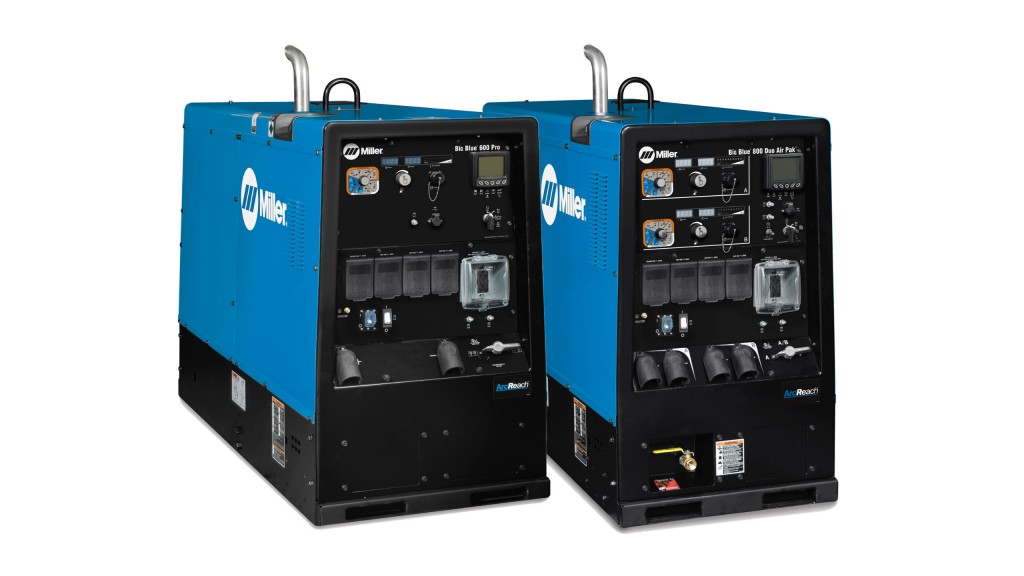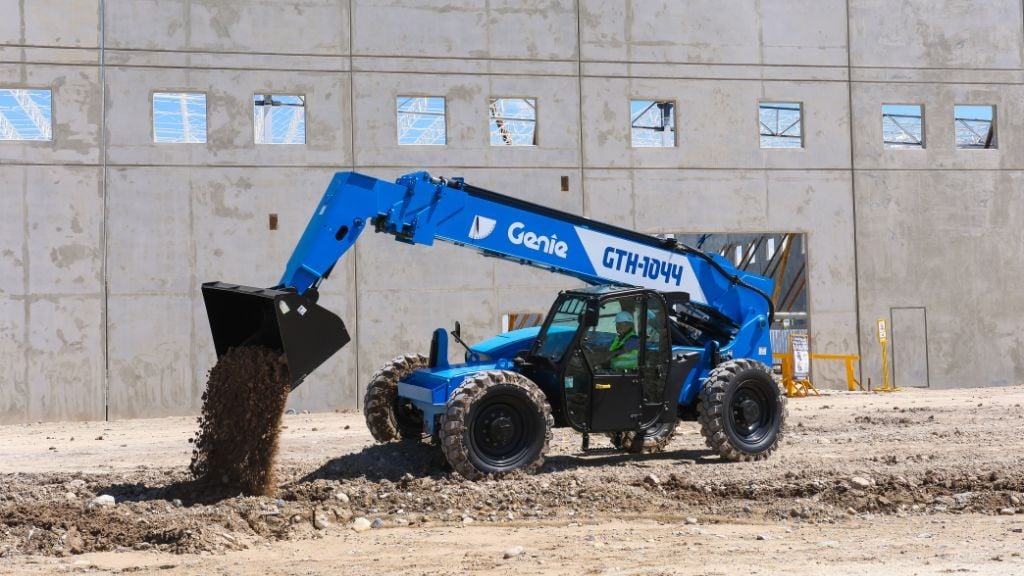Remote control technology allows easier operation of power sources

Miller Electric has expanded its ArcReach remote control technology to more engine-driven power sources in the Trailblazer and Big Blue families of products. ArcReach technology is now available on Trailblazer 325 power sources as well as Big Blue 600 Air Pak, 800 Duo Pro and 800 Duo Air Pak models, providing complete control of welding parameters at the weld joint — without a control cord.
With the addition, ArcReach capabilities are now available or standard on nearly all products in the Big Blue lineup and on Trailblazer 325 models. The expansion provides greater flexibility and fleet compatibility in heavy industrial applications, including maintenance and repair rigs, construction, mining maintenance, railroad maintenance and pipe welding.
The same ArcReach accessories that work on ArcReach-equipped XMT and Dimension power sources are now also compatible with select Trailblazer and Big Blue engine-driven power sources — so companies can expand use of the technology with their existing accessories. In addition, legacy wire feeders and stick/TIG remotes will continue to work with the ArcReach-equipped machines, so companies can fully utilize their existing accessories and equipment until they are ready to replace or upgrade.
"Miller is the only welding equipment manufacturer to offer this type of remote control technology in an engine-driven power source, and we've added even more ArcReach-compatible engine-drive options for greater flexibility," said Ben Froland, product manager, Power Systems Division, Miller Electric Mfg. Co. "The ability to adjust weld settings at the weld joint saves trips to and from the power source, and now more customers can realize the productivity, efficiency and safety benefits across their entire welding fleet."
With several ArcReach accessories to choose from, welding operators can remotely set up and make process and parameter adjustments for stick, TIG, MIG, flux-cored and advanced wire processes all at the weld joint. This reduces the amount of time spent walking back and forth to the power supply to make changes, which significantly improves productivity while also providing benefits for welding operator safety on the jobsite.
Slip, trip and fall hazards are among the most common workplace injuries. Limiting jobsite movement by reducing necessary trips to the power source to make adjustments helps improve operator safety and save significant time.



